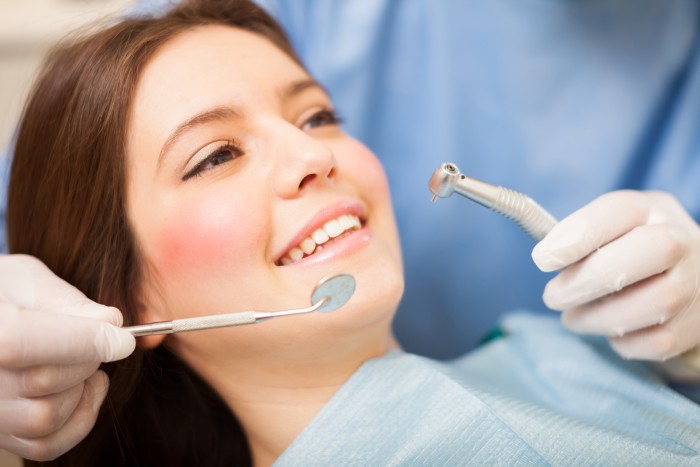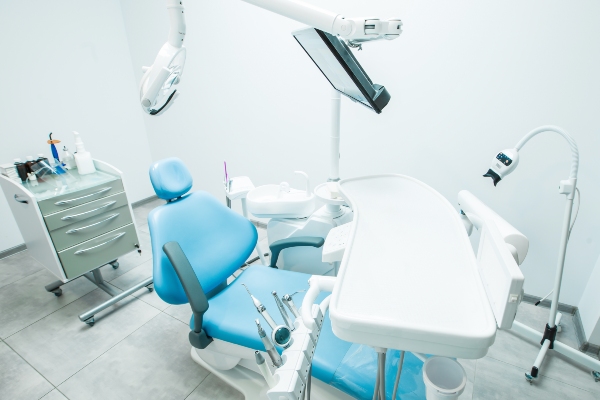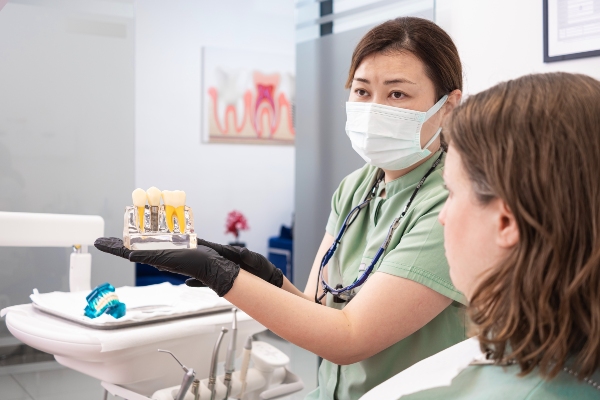How to Clean Your New Dental Implants

Dental implants are a very involved surgery that requires a lot of care after the procedure has been completed. Patients are expected to maintain good oral hygiene, especially after the surgery to ensure that the mouth stays in good condition while the healing process begins.
A lot of patients may not know what to expect post surgery, but today we will go over the best ways to clean those brand new dental implants. Having a dental surgery can be quite intimidating, but knowing how to care for the healing wound will ensure that the implants and surrounding area stay clean and healthy.
How to clean new dental implants
Post surgery can be painful for some patients, but it’s important to still maintain a cleaning routine to ensure that infections don’t form and that the rest of the mouth stays healthy. These tips will help patients who have just experienced dental implant surgery:
Soft-bristled toothbrush
As soon as the surgery is over, the implant and surrounding area may be sore and tender. However, it is still extremely important to brush the teeth and the area to avoid infections from forming. Use a soft-headed toothbrush, anything too firm may cause discomfort and unnecessary inflammation around the wound. A soft-headed toothbrush will ensure that a proper cleaning is done while maximizing the comfort or brushing.
Oral irrigators
Oral irrigators may seem fancy to some, but they will be beneficial to the dental implants and the healing process. Oral irrigators provide the patient’s mouth with a stream of water to remove any excess food particles that could get stuck in or around the implants. The irrigator will flush out any bacterias or plaques that may form during the healing process. Because patients may be in pay post-surgery, an oral irrigator ensures that there is minimal pain applied when using it. A stream of water shouldn’t cause too much inflammation or discomfort for the patient.
Rinse with salt water
A salt water rinse always provides benefits to the entire mouth as a whole, but especially after a dental implant surgery is done. Rinse 2-3 times a day after the procedure, this will reduce the chance of infection while also cleansing the entire mouth. A salt water rinse isn’t too harsh so there shouldn’t be any discomfort from it, but it is effective enough to provide a good cleaning.
Conclusion
Knowing the best ways to clean the dental implants and surrounding areas post-surgery can be beneficial to those who have just experienced the procedure. Follow these tips to ensure that the implants heal.
If you have further questions regarding dental implant cleaning care after surgery then call us today! We’re happy to assist in any way we can and our trained professionals can give more tips on proper cleaning of dental implants.
Are you considering dental implants in the Honolulu area? Get more information at https://www.diamondheaddentalcare.com.
Recent Posts
Dental implants can replace missing teeth, restore chewing strength, and provide support for a natural-looking smile. For optimal results, an endodontist or root canal specialist can carefully plan and place implants. After all, successful treatment outcomes begin with clear education about what to expect at every step, as well as proper care and maintenance afterward.…
When someone is missing one or more teeth, it will affect not only their ability to eat, but also the health of their jawbone and face structure, and this can all be corrected with dental implants. As an additional concern, these implants can improve your smile, which will be good for their confidence level and…
Missing teeth can significantly affect how you speak, eat, and feel about yourself. Fortunately, dental implants can help restore you and your mouth to a more natural look and function. Dentists use implants to replace one or more lost teeth. They also sometimes serve as foundations for bridges and dentures. Implants mainly permit you to…
Dental Implants are metal rods or screws (typically titanium) that are inserted into gum tissues as a general dentistry procedure. They are combined with restorations like crowns, dentures, and bridges to replace missing teeth.Implants help ward off the bone tissue loss that people with missing teeth can find themselves dealing with. The implant transfers bite…


